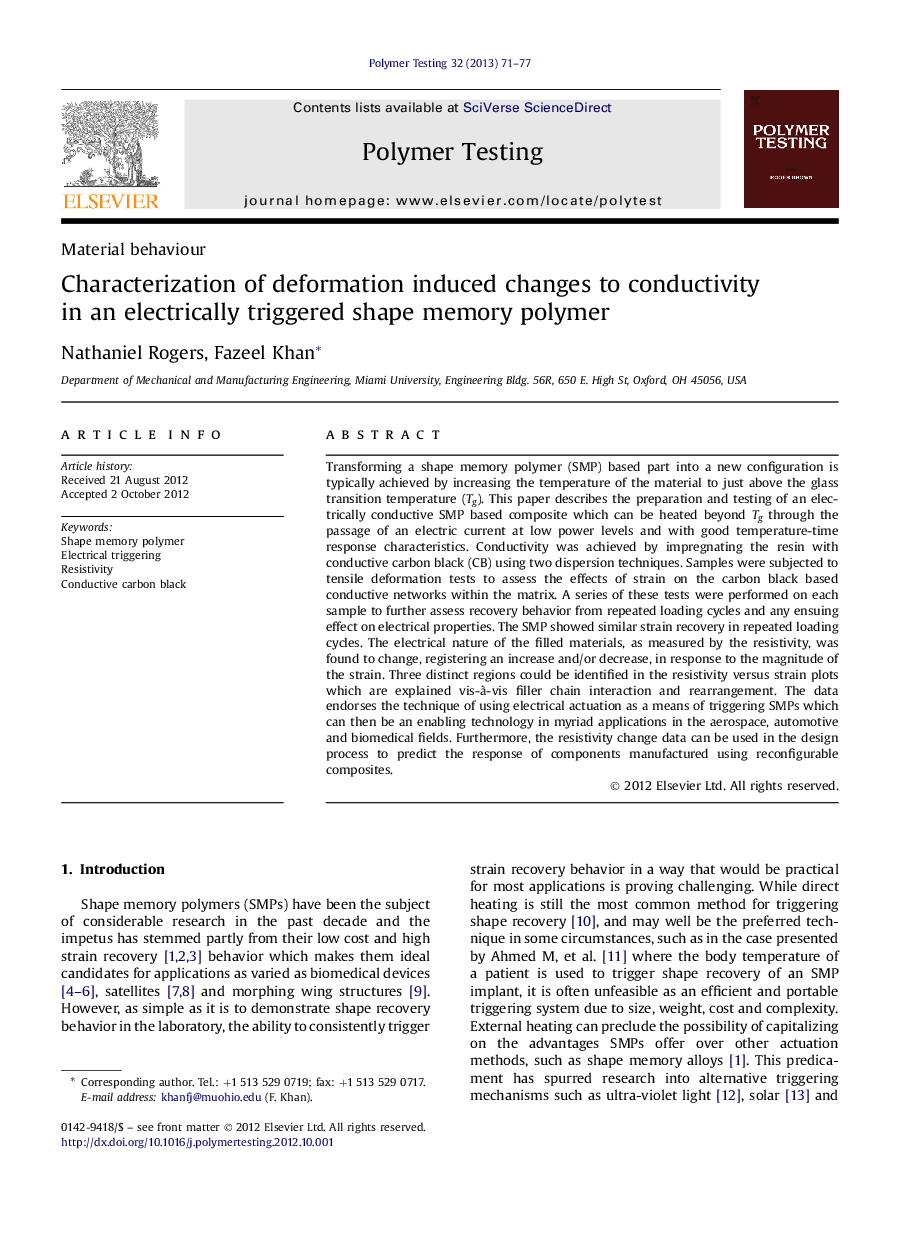| Article ID | Journal | Published Year | Pages | File Type |
|---|---|---|---|---|
| 5206547 | Polymer Testing | 2013 | 7 Pages |
Transforming a shape memory polymer (SMP) based part into a new configuration is typically achieved by increasing the temperature of the material to just above the glass transition temperature (Tg). This paper describes the preparation and testing of an electrically conductive SMP based composite which can be heated beyond Tg through the passage of an electric current at low power levels and with good temperature-time response characteristics. Conductivity was achieved by impregnating the resin with conductive carbon black (CB) using two dispersion techniques. Samples were subjected to tensile deformation tests to assess the effects of strain on the carbon black based conductive networks within the matrix. A series of these tests were performed on each sample to further assess recovery behavior from repeated loading cycles and any ensuing effect on electrical properties. The SMP showed similar strain recovery in repeated loading cycles. The electrical nature of the filled materials, as measured by the resistivity, was found to change, registering an increase and/or decrease, in response to the magnitude of the strain. Three distinct regions could be identified in the resistivity versus strain plots which are explained vis-Ã -vis filler chain interaction and rearrangement. The data endorses the technique of using electrical actuation as a means of triggering SMPs which can then be an enabling technology in myriad applications in the aerospace, automotive and biomedical fields. Furthermore, the resistivity change data can be used in the design process to predict the response of components manufactured using reconfigurable composites.
